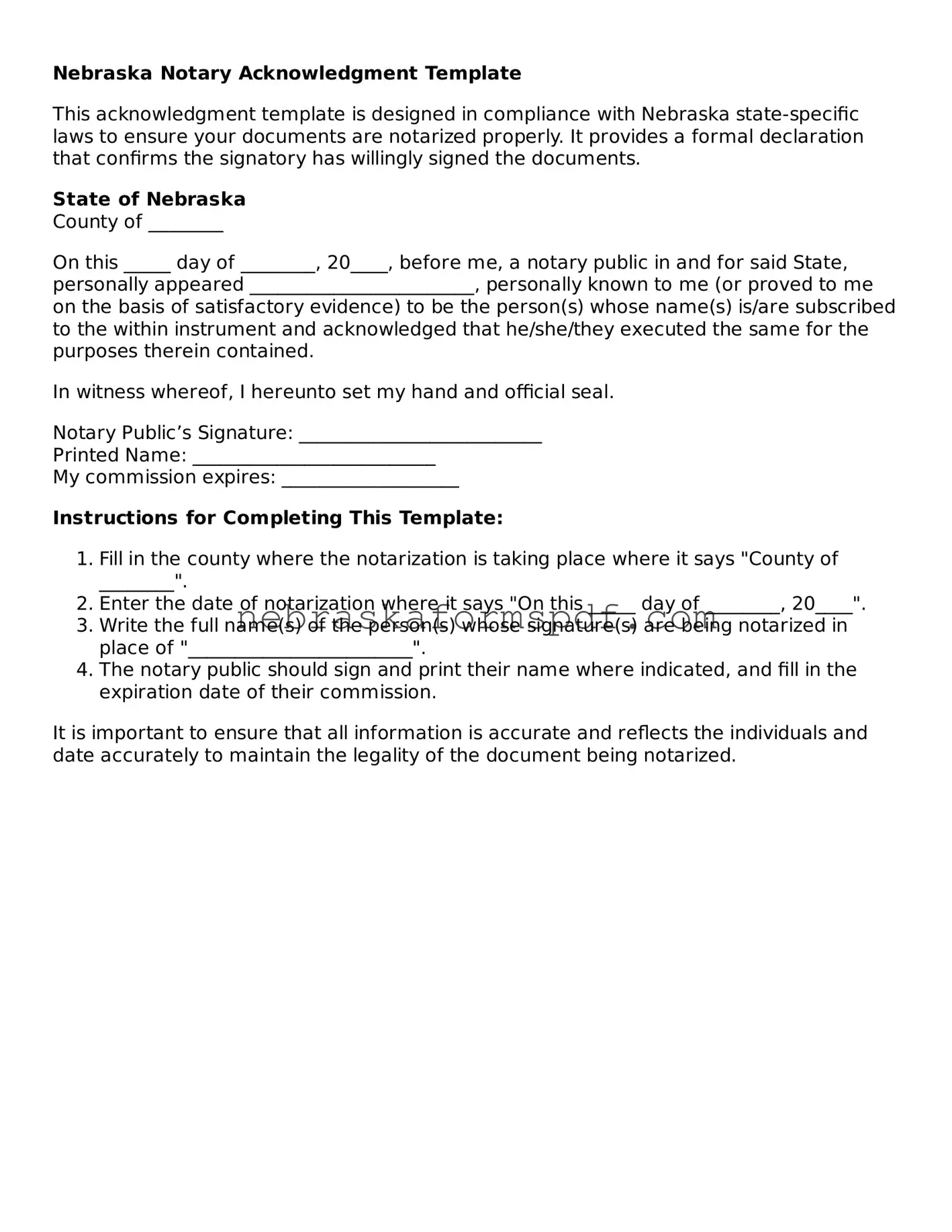Fillable Nebraska Notary Acknowledgement Template
The Nebraska Notary Acknowledgment form is an official document used to verify the signature of a person on another document. It is completed by a notary public, who confirms the identity of the signer and that they signed the document willingly and under their own power. This form is an essential tool in authenticating documents for legal and official matters.
Open Editor Here

Fillable Nebraska Notary Acknowledgement Template
Open Editor Here

Open Editor Here
or
Click for PDF Form
Don’t exit with an incomplete form
Finish Notary Acknowledgement online using a quick, guided process.